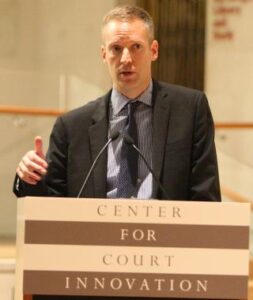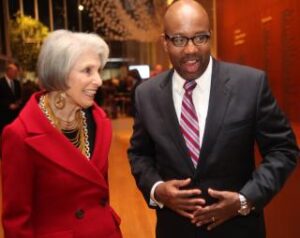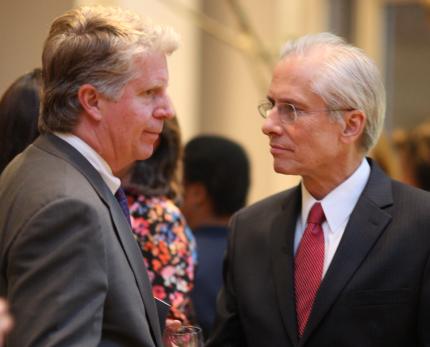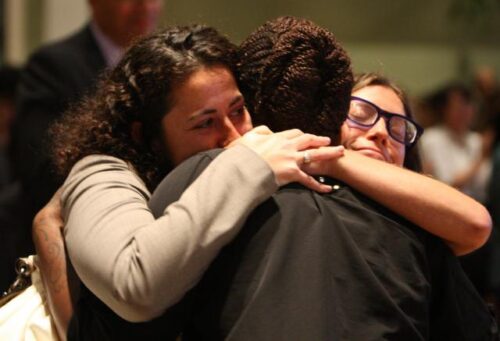“If we had a theme tonight, it would be public-private partnership,” said journalist Errol Louis, the master of ceremonies and host of Inside City Hall.
Founded in 1993, the Midtown Community Court is the product of a unique collaboration of government agencies, business groups, and non-profit organizations, including the New York State Court System, the City of New York, and the Fund for the City of New York. The Court, which emphasizes alternatives to jail for misdemeanor defendants, has been credited with helping to improve public safety and reduce the use of incarceration.

Greg Berman, director of the Center for Court Innovation.
The 20th anniversary celebration included three honorees:
Jonathan Lippman, the chief judge of the State of New York, who has encouraged the Midtown Court to continue to test new ideas, including new responses to adolescent defendants and victims of human trafficking;
The Shubert Organization, Broadway’s largest theater owner, which provided crucial seed funding; and
Nicolet Robinson, a victim of sex trafficking who has been re-building her life with the court’s help.
Greg Berman, director of the Center for Court Innovation, praised Judge Lippman for using “his bully pulpit to push and poke and prod our justice system to be the best that it can be and to live up to its highest ideals.”
Greg Berman, director of the Center for Court Innovation, praised Judge Lippman for using “his bully pulpit to push and poke and prod our justice system to be the best that it can be and to live up to its highest ideals.”
Lippman declared that “one of the enduring takeaways from the Midtown Community Court is that transforming individual lives isn’t just a feel-good story– it’s good public policy.”

Erroll Louis, master of ceremonies, and Pat Schoenfeld, widow of Gerald Schoenfeld, former chairman of The Shubert Organization.
John Feinblatt, chief advisor to Mayor Michael R. Bloomberg for Policy and Strategic Planning and founding director of the Midtown Community Court, highlighted the crucial role that The Shubert Organization and its then-Chairman Gerald Schoenfeld played in the early days of the project.
Robinson, the former client, told the crowd that every system she’d encountered before coming to the Midtown Court had failed her—schools, foster care, and the criminal justice system. But when she came to the Midtown Court three years ago, “I finally was treated like a whole person. Not as a number or as a criminal or looked at as a victim or as any other label.”

Manhattan District Attorney Cyrus Vance Jr., left, and John Jay College President Jeremy Travis.
